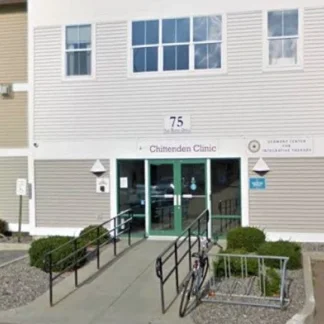Phoenix House - RISE Men's Supported Living Program
Phoenix House - RISE Men's Supported Living Program is located in Burlington, Ve...
Howard Center – Chittenden Clinic offers drug and alcohol addiction treatment for individuals in South Burlington, Vermont. They also provide valuable community resources, such as referrals, vocational support, and developmental support services.
Addiction-related services offered at Howard Center – Chittenden Clinic include mental health assessment and counseling, outpatient drug and alcohol rehab, medication-assisted treatment (MAT), peer support groups, and aftercare.
Mental Health Assessment and Counseling Mental health assessments evaluate the severity of substance use disorder and the presence of any co-occurring mental health disorders, in order to create an individualized treatment plan. Treatment may include individual, group, and/or family counseling, medication (such as MAT), and peer support.
Medication-Assisted Treatment for Addiction The medication-assisted treatment (MAT) program is delivered on an outpatient basis, and includes counseling, support groups, and medication management. MAT is appropriate for alcohol and opioid use disorders. As clients progress and stabilize, in-person office appointments tend to become less frequent.
Recovery Support Meetings Individuals engaged in the outpatient MAT program can attend peer support meetings run by various recovery groups, like Narcotics Anonymous and Alcoholics Anonymous. This peer-based group provides support to one another through sharing their experiences, working through their recovery program, and being supportive of one another.
Aftercare Aftercare involves follow-up treatment when an individual has completed an outpatient program. This may involve relapse prevention strategies, attending recovery activities, and medication management.
Contact us for more information: (802) 488-7380

Connect with Howard Center - Chittenden Clinic by calling their admissions team directly.
(802) 488-7380 Website Get DirectionsThe Substance Abuse and Mental Health Services Administration (SAMHSA) is a branch of the U.S. Department of Health and Human Services. Established in 1992 by congress, SAMHSA's mission is to reduce the impact of substance abuse and mental illness on American's communities.
SAMHSA Listed: Yes
Group therapy is any therapeutic work that happens in a group (not one-on-one). There are a number of different group therapy modalities, including support groups, experiential therapy, psycho-education, and more. Group therapy involves treatment as well as processing interaction between group members.
Trauma therapy addresses traumatic incidents from a client's past that are likely affecting their present-day experience. Trauma is often one of the primary triggers and potential causes of addiction, and can stem from child sexual abuse, domestic violence, having a parent with a mental illness, losing one or both parents at a young age, teenage or adult sexual assault, or any number of other factors. The purpose of trauma therapy is to allow a patient to process trauma and move through and past it, with the help of trained and compassionate mental health professionals.
Trauma therapy addresses traumatic incidents from a client's past that are likely affecting their present-day experience. Trauma is often one of the primary triggers and potential causes of addiction, and can stem from child sexual abuse, domestic violence, having a parent with a mental illness, losing one or both parents at a young age, teenage or adult sexual assault, or any number of other factors. The purpose of trauma therapy is to allow a patient to process trauma and move through and past it, with the help of trained and compassionate mental health professionals.
Phoenix House - RISE Men's Supported Living Program is located in Burlington, Ve...
Howard Center for Human Services is a non-profit rehab located in Burlington, Ve...
Centerpoint – Adolescent Treatment is a private rehab located in South Burlingto...
Howard Center – Family Services is a private rehab located in Burlington, Vermon...